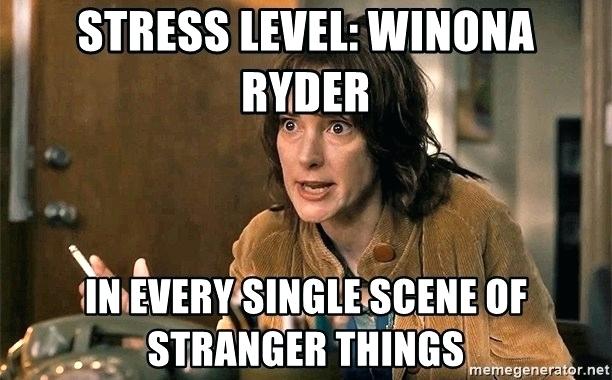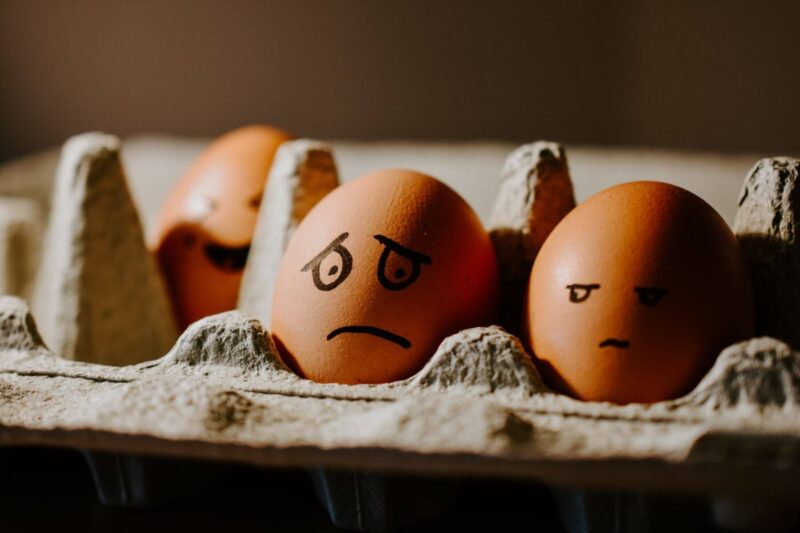These days it seems as if my mind can’t stop buzzing with thoughts of things I should do, prepare for or am simply not doing. It’s stressful to the point of grinding my teeth in my sleep (I also catch myself unconsciously doing this when I’m awake) and not being able to sleep unless I feel super exhausted.
It’s just so alarming I had to Google my way to a solution (which of course, inevitably led to more revenge bedtime procrastination).
But then I finally understood…it’s the Zeigarnik effect in action!
The Zeigarnik effect is a psychological phenomenon that describes the tendency of people to remember incomplete or interrupted tasks better than completed tasks. It was first observed by Bluma Zeigarnik, a Russian psychologist, in the 1920s.
According to Zeigarnik, people remember unfinished tasks because they create a state of tension or mental “openness” that motivates them to complete the task in order to achieve closure and relieve the tension. In other words, when we start a task but don’t finish it, our brain keeps it active in our memory until we can complete it.
What is Zeigarnik Effect?#psychology #psychologyfact #FactsMatter #factsfirst #mindhelp pic.twitter.com/Oxk8U7svR1
— Mind Help (@mindshelp) December 28, 2021
The Zeigarnik effect has been shown to have implications in various areas of life, including education, work, and personal goal-setting. It suggests that it may be helpful to break down larger tasks into smaller, more manageable pieces to avoid feelings of overwhelm and increase motivation.
Interestingly, the Zeigarnik effect can also be used in marketing and advertising to create a sense of anticipation and interest in products or services.
How the Zeigarnik Effect Causes Stress

The Zeigarnik effect can cause stress in a number of ways. For example, when you have a long list of unfinished tasks, it can be difficult to let go and focus on anything else until you have completed them. This causes you to overwork and be in a constant state of worry. It can then lead to a sense of pressure and anxiety, which can be quite difficult to shake off.
In addition, when we have many unfinished tasks, we may feel like we are not making progress, which can be demotivating and increase our stress levels. All the more when there’s drama in the workplace.
How to Work with the Zeigarnik Effect
Before you make any sudden career decisions, there are some strategies that we can use to reduce the negative effects of the Zeigarnik effect.
One of the most effective strategies is to break down larger tasks into smaller, more manageable pieces. This can help us to avoid feeling overwhelmed and make it easier to focus on one task at a time. Additionally, it can be helpful to prioritise tasks based on their importance and urgency and to tackle the most pressing tasks first.
Another strategy that can be effective is to create a clear plan or schedule for completing tasks. This can help us to stay on track and make progress, which can reduce the sense of stress and anxiety that comes with having many unfinished tasks. It can also be helpful to set realistic goals and deadlines and to celebrate small victories along the way.
In addition to these strategies, it is important to take breaks and practice self-care. When we are feeling stressed and overwhelmed, it can be tempting to try to power through and complete as many tasks as possible.
However, this can actually make the situation worse by increasing our stress levels and making it harder to focus. Instead, taking breaks and engaging in activities that we enjoy can help us to recharge and reduce our stress levels. So what if your house is not tidy for the next couple of days?
What Worked for Me
Having understood all these, I set out on a mission (yes, this led to more sleep procrastination) to find the best way to capture all these open loops in my brain — and what better way than writing them down?
I knew I needed an app to help me out because I wanted to be reminded automatically if I should do something. I love writing my to-do lists manually, but my brain won’t have that reprieve if there’s a nagging feeling that I’ll miss a task or that I won’t be able to find that piece of information later on. So calendars, reminders, to-do lists and a note-taking solution is what I needed.
It’s a good thing that nowadays, we know that there’s an app for almost everything. And lo and behold, there are so many productivity apps out there to choose from. From the free to the paid ones, you’re most likely to find one that works best for your lifestyle and way of doing things.
I finally settled on Todoist (not a sponsored post) because I liked the feel of it. I started with Free but decided I wanted to try Pro after a few days (just so I could spread out some of my sections as projects). I’ve yet to try the reminders and further explore the app, but so far listing out all these things gave my mind a little more peace. I also liked being able to tick off tasks like some sort of accomplishments (the app also has a way of affirming you when you’ve completed tasks for the day or a certain number of tasks you’ve indicated as a goal).
It even offers a Getting Things Done Weekly Review Template to guide you if you’re following the GTD route. What I like best here is that it tells you to go over your lists weekly to ensure nothing is missed out and everything is processed (though not done, could be that it’s just filed properly). It’s an added task obviously, but knowing that you’ve reviewed everything (or at least those that you’ve identified as future tasks and references) provides relief for my tired brain.
Hope It Works Out for You Too
In conclusion, the Zeigarnik effect can contribute to stress and anxiety by creating a mental burden of unfinished tasks. However, by breaking down tasks, prioritizing, creating a clear plan, and practising self-care, we can reduce the negative effects of this phenomenon and improve our mental health and well-being.
Choose what works for you, and always give the self-love you deserve. Keep in mind that not everything has to be flawless, so embrace the imperfections in your life! Remember also, that stress and anxiety are common experiences — and that seeking support from friends, family, or mental health professionals is always an option.






No Comment